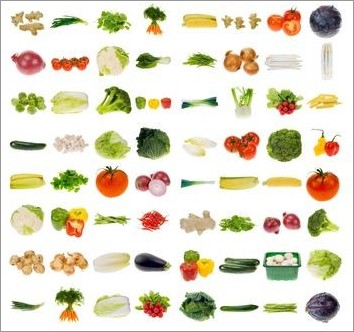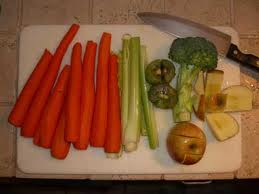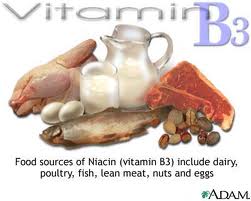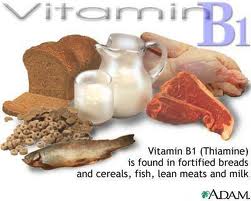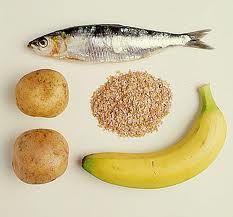|
MUSCLE BUILDING VITAMINS TOP 10 SHOOT OUT...who will grab the number 1 spot?
This is a list of our top 10 muscle building vitamins in reverse order. Test yourself to see if you know the top 2 without looking. Number 10 in our muscle building vitamins chart. Cobalamin (vitamin B12)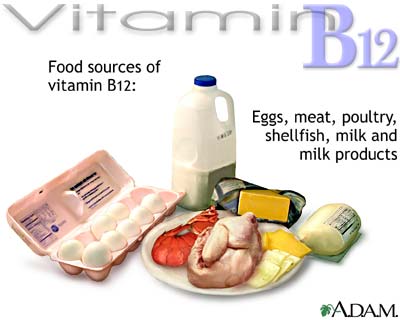
Although the functions of vitamin B12 are numerous, those important to bodybuilders include carbohydrate metabolism and maintenance of nervous system tissue (the spinal cord and nerves that carry signals from the brain to muscle tissues). Stimulation of muscles via nerves is a critical step in the contraction, coordination and growth of muscles.
Vitamin B12 is available only from foods of animal origin; therefore,it is very important for athletes following a strict vegetarian diet to consult a physician about vitamin B12 supplementation. In fact, B12 shots are popular with countless athletes, vegetarians and nonvegetarians alike, many of who swear it helps them perform better. IN AT 9. BiotinAlthough there's a limited amount of sports nutrition research on Biotin, it makes our top 10 list because it has critical functions in amino acid metabolism and the production of energy from many sources. It also may be one vitamin that some bodybuilders have trouble when attempting to maintain an adequate supply.
The reason bodybuilders may have difficulty with Biotin is because it can be blocked by a substance called Avidin. Avidin is found in raw egg whites, a staple for many athletes. In fact, bodybuilders who eat raw egg whites or who don;t cook egg white well enough may experience growth problems with Biotin deficiency if their egg white consumption approaches 20 per day. Eating raw eggs can also lead to a bacterial infection called Salmonella, which can have severe health consequences. FALLING TO NUMBER 8. IN OUR MUSCLE BUILDING VITAMIN CHART IS Riboflavin (vitamin B2)Riboflavin is involved in energy production in three areas: 1) Glucose metabolism, 2) Oxidation of fatty acids, and 3) The shuttling of hydrogen ions through the Krebs cycle. Of particular interest to bodybuilders, Riboflavin is somewhat related to protein metabolism. In fact, there is a strong relationship between lean body mass and dietary riboflavin.
One study by Belko and colleagues found that females needed higher than RDA levels of Riboflavin to return blood levels of Riboflavin to normal after exercise. Another study by Haralambie showed that Riboflavin supplementation improved muscular hyperexcitability (seen in trained athletes). This vitamin may prove to be especially important for athletes. MAKING ITS WAY TO NUMBER 7. IS Vitamin A
Most of us know that vitamin A helps with vision, but bodybuilders need to become familiar with its other benefits. First of all, vitamin A is important in the synthesis of protein, the chief process of muscle growth. Second, vitamin A is involved in the production of Glycogen, the body's storage form of energy for high intensity performance.
The problem with vitamin A status in bodybuilders is twofold. First, American diets are consistently measured to be low in vitamin A. Second, both strenuous physical activity (which disrupts the absorption of vitamin A) and a low fat diet (which renders vitamin A loss in feces) jeopardize the level of vitamin A in the body. So be especially careful of your vitamin A intake during contest preparation.
STAYING AT 6. IN THE MUSCLE BUILDING VITAMIN CHART IS Vitamin E
Vitamin E is a powerful antioxidant, meaning it protects the cell's membranes. This is important because many of the metabolic processes that take place in the body, including the recuperation and growth of muscle cells, are dependent upon health cell membranes.
You've probably heard a lot about antioxidants in the news lately, and research continues to validate their importance. Specifically, antioxidants help to reduce the number of free radicals in the body. Free radicals are natural byproducts of cellular respiration, but accumulation of free radicals can lead to cellular changes and destruction (even cancer), rendering cells unable to adapt normally. This means a reduction in exercise induced processes in the cell such as repair and growth. 5. Niacin (vitamin B3)
Vitamin B3 or niacin is very important in maintaining healthy skin and proper blood circulation. It also has significant effects in maintaining normal nerve and brain functions, enhancing memory, as well as in the proper digestion and absorption of carbohydrates, fats and proteins. The most renowned of all the benefits of vitamin B3 is its significant effect in lowering and controlling cholesterol levels. The other benefits of niacin ranges from its relieving effect on schizophrenia to its soothing effect on arthritis, and almost everything else in between. STAYING AT 4. IS Vitamin DVitamin D plays a crucial role in the absorption of Calcium and Phosphorus. Calcium is necessary for muscular contraction. If adequate stores of Calcium are not available in the muscle, full, hard muscular contractions cannot be sustained. Of course, Calcium is also needed for the integrity of bones, which must support increased muscle tissue and provide an anchor during muscular contraction.
And don't forget about Phosphorus. Phosphorus helps provide quick, powerful muscular contractions, which comprise the majority of movements during weight training. Phosphorus is also required for the synthesis of ATP (Adenosine Triphosphate), the high energy molecule used by your muscle cells during contraction.
This nutrient is high in the list since bodybuilders typically avoid the fat content, e.g., dairy foods. Look for vitamin D fortified foods and get in the habit of drinking at least one glass of low-fat or nonfat milk per day. OUR NUMBER 3. Thiamine (vitamin B1)
This B vitamin packs muscle! Thiamine is one of the vitamins required for protein metabolism and growth. It's also involved in the formation of hemoglobin, a protein found in red blood cells that transports oxygen throughout the body (especially working muscles). The transport of oxygen is critical to athletic performance and becomes even more important as intensity and duration of exercise increase.
Making matters more interesting, Thiamine, according to research, is one of the few vitamins that enhances performance when supplemented and is increasingly needed by athletes. Not only that, but Thiamine requirements appear to be directly related to caloric expenditure. The more exercise frequency, intensity and duration increase, the more Thiamine is needed. NON MOVER AT NUMBER 2. IN OUR MUSCLE BUILDING VITAMIN CHART IS Vitamin B6 (Pyridoxine)
Protein metabolism, growth and carbohydrate utilization are all made possible in part by the presence of vitamin B6. Like Thiamine, studies on Pyridoxine in athletic performance show a definite increased need for athletes and possible performance enhancement from supplementation. It's the only vitamin directly tied to protein intake. The more protein you eat, the more Pyridoxine you need. Of course, this, coupled with Pyridoxine's role in growth, had profound implications for bodybuilders, though it is generally not known or discussed in sports nutrition circles.
And holding down the number ONE spot in our muscle building vitamins shoot out is
|






